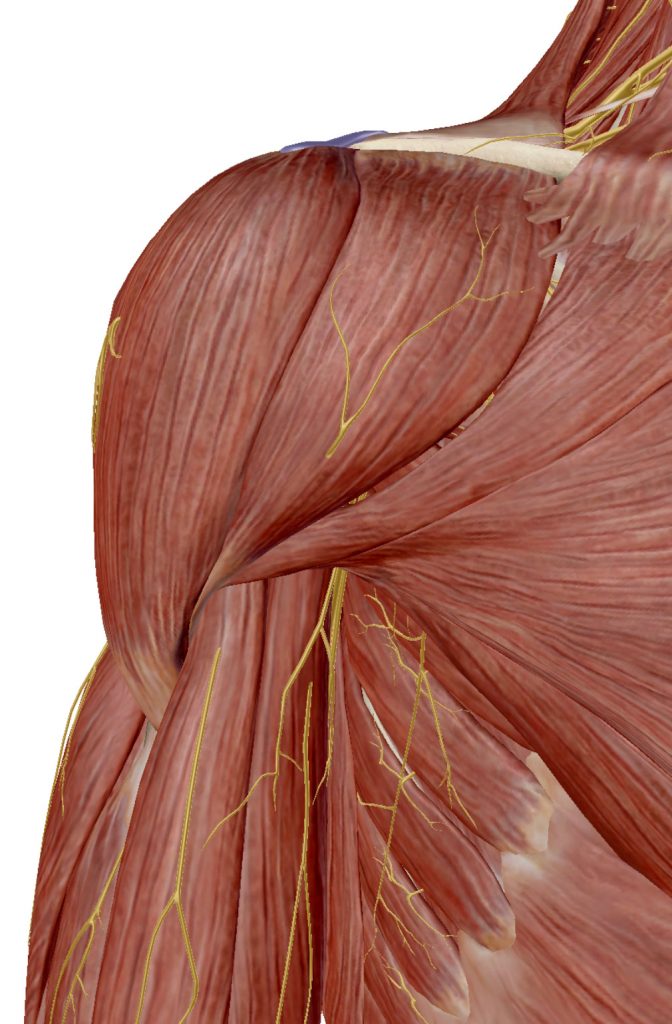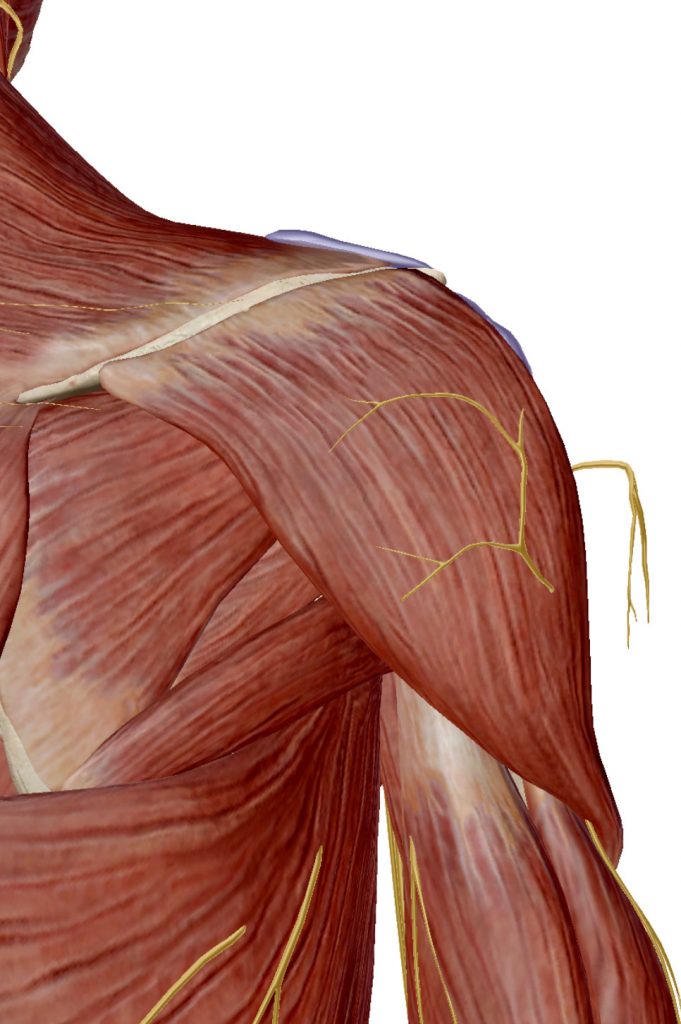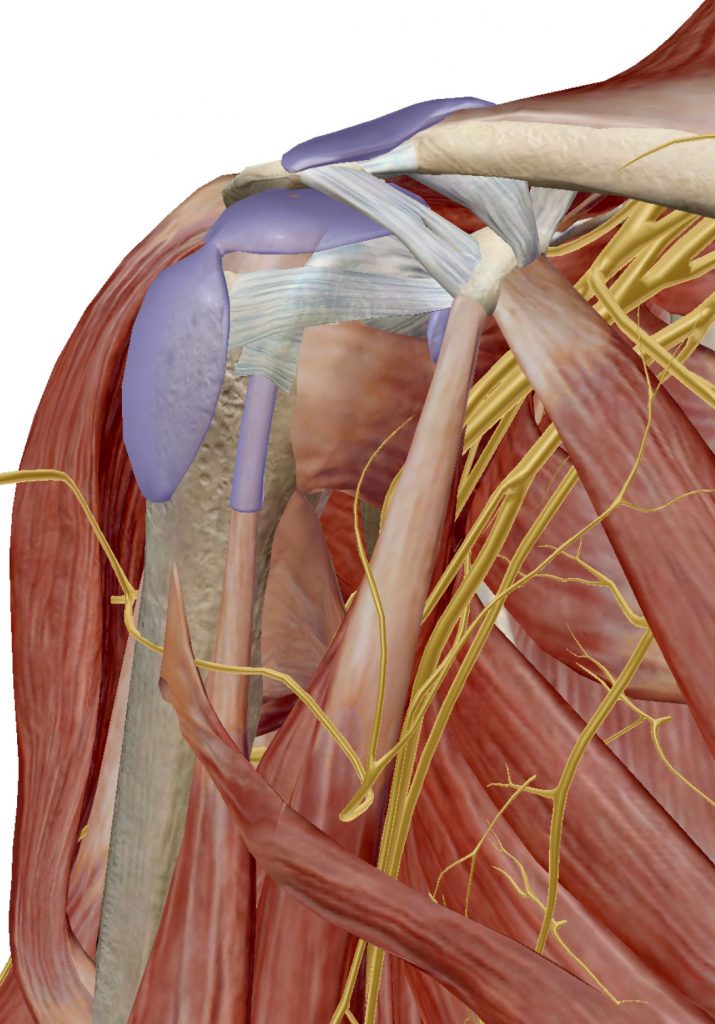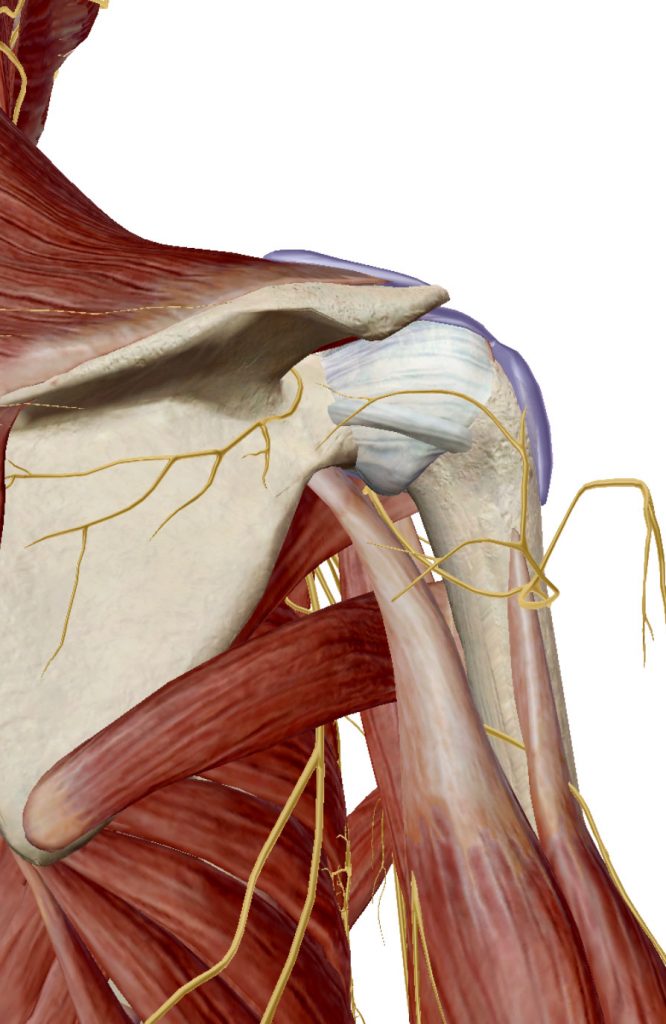
Why does my Shoulder Hurt?
Shouler pain may have many causes. You might injure it in a fall or accident, or have overdone things such as painting. Occasionally shoulder pain comes from a condition like arthritis. It can even stem from problems in other parts of your body, which is called referred pain.

Do I Have an Injury?
Ask yourself some questions to help you decide if you have a shoulder injury.
- Can you move your arm normally, or is your shoulder too stiff or painful?
- Do you feel like your shoulder could pop out of the socket?
- Is your shoulder strong enough for things you normally do?
You can treat some shoulder injuries at home for a few days with rest and ice. You can bandage it to hold it in place if necessary, and elevate it above the heart. But some injuries need professional help. Here are signs that you need to see a doctor right away:
- The pain is intense.
- The shoulder is swelling suddenly.
- Your arm or hand is weak or numb.
- You can’t use your shoulder at all.
- Your shoulderjoint looks deformed.

Common Injuries
Dislocation. If your shoulder is pulled back too hard or rotated too far, the top of your arm might pop out of its socket. You will feel pain and weakness in your shoulder. You may also have swelling, numbness and bruising.
Separation. This injury affects the joint where your collarbone and shoulder blade come together. It’s called the acromioclavicular (AC) joint. A fall or hard blow tears the ligaments holding it together. If your collarbone gets pushed out of place, you’ll have a bump on top of your shoulder.
Fracture. A bone can break or crack if you fall or take a hard hit. The most common breaks are to the clavicle (collarbone) and the humerus (arm bone closest to your shoulder). You’ll have a lot of pain and it may bruise If your collarbone is broken, your shoulder can sag and you might not be able to lift your arm.
Cartilage tear. You can injure the cartilage (the rubbery padding) that goes around the rim of your shoulder joint. It can happen after doing the same motion over and over. You can also hurt it in a fall, or anytime your shoulder absorbs a lot of force. With this type of injury, you might feel pain when you reach over your head, and your shoulder could seem weak. It might also feel like it’s catching, locking, or grinding.

Rotator Cuff tear. Your rotator cuff is the group of muscles and tendons in your shoulder that hold your arm in place and let you lift your arm up overhead. You can damage it through overuse or in a fall. It also begins to show wear and tear as you age. Your shoulder may hurt at night and when you try to lift things. You might hear a crackling sound when you move it.
Frozen shoulder. This condition limits how much your joint will move. Abnormal bands of tissue (adhesions build up in the joint and keep your shoulder from moving freely. Your shoulder might “freeze” because pain or surgery have made you use it less, allowing the adhesions to build up.
Impingement. This happens when the tendons of the rotator cuff get pinched in the bones of the shoulder. It can cause swelling and pain. If you lift your arms over your head a lot, it can set this off.
Bursitis. The bursa (a fluid-filled sac that cushions in your joint) can get swollen and irritated if you repeat the same motions over and over again. But it can also be caused by a fall or another injury. If you have bursitis, you may notice the pain most when you move your shoulder.
Other Causes
Osteoarthritis . Also called degenerative joint disease, this is the most common form of arthritis. It can affect any joint, including your shoulders. The cartilage between bones breaks down, and they rub together. This can cause pain and stiffness.
Rheumatoid arthritis. This is a disease that causes your body’s immune system to attack the protective lining in your joints. It can also cause pain and stiffness in your shoulders.
Referred pain. Sometimes your shoulders hurt when there’s nothing wrong with them. This can be a sign of trouble with your gallbladder, liver or another organ.
Heart Attack. If your shoulder hurts and you have trouble breathing or your chest feels tight, you might need emergency medical help right away.
What Are the Treatments?
Osteopathic
Assessment of movement and posture to analyse the causing issues. Soft tissue treatment to improve range of movement. Exercise and rehabilitation advice. Referral to specialist where necessary. For an appointment call 07841576335 or email david@theosteopath.net.
For dislocations, separations and fractures, you need a doctor’s help to get your shoulder back in the right position and then a sling to hold it in place while it heals.
For many other issues, your doctor may suggest rest, heat or ice and a medicine like ibuprofen or aspirin to reduce the pain and swelling.
If your shoulder doesn’t improve after these first steps, your doctor may try injecting a corticosteroid (an anti-inflammatory medicine) straight into the joint to relieve swelling and pain.
Sometimes cartilage tears, rotator cuff tears and frozen shoulder don’t improve with rest and medicine. Your doctor and Osteopath may recommend surgery.
With any problem in your shoulder, your treatment plan will probably include exercises to help you stretch and strengthen the joint, and to improve your range of motion.